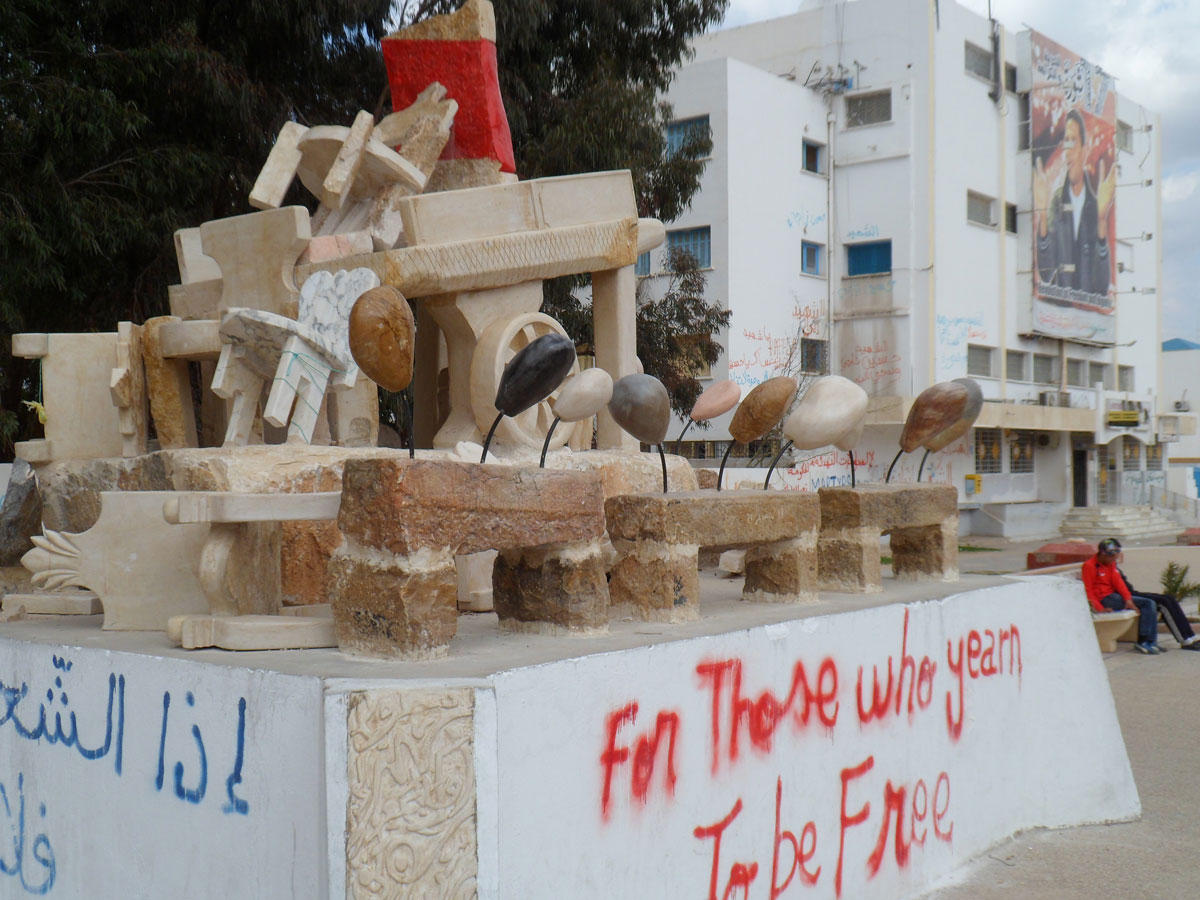If Only the Renewal of the Arab Spring Were as Solid as This Street Vendor Tribute

Check out this cool and touching tribute to the birthplace of the so-called Arab Spring in Tunisia, where street vendor Mohammed Bouazizi set himself on fire two years ago out of frustration and despair over government corruption and abuse. His suicide set off a wave of rebellions across North Africa and the Middle East.
The memorial, made of creamy marble and honey-colored stone, was unveiled by the nation’s new president in December 2011 in Bouazizi’s town, the poetically named city of Sidi Bouzid in rural central Tunisia, south of the capital Tunis. The poignant memorial and the photo of him on the poster hanging from the building in the background, are across from another building that houses the provincial governor’s office where Bouazizi had gone to cover himself in paint thinner and then set himself alight.
USIP’s Robin Wright took the photo when she visited Sidi Bouzid in March, and the memorial was still there when she returned in October. She’s author of “Rock the Casbah: Rage and Rebellion Across the Islamic World” and a distinguished scholar at both USIP and the Woodrow Wilson International Center for Scholars. In a USIP Peace Brief, she and Garrett Nada, a program assistant at USIP’s Center for Conflict Management, explain why the “mixed results” of the uprisings so far – in Egypt, Tunisia, Libya, Yemen and elsewhere – mean “even bigger challenges” in the year ahead.
Take a look and let us know your thoughts on what it will take to secure peace in the countries of this monumental transition.
Wright also blogs at http://robinwrightblog.blogspot.com and tweets at @wrightr
Viola Gienger is a senior writer for USIP.



